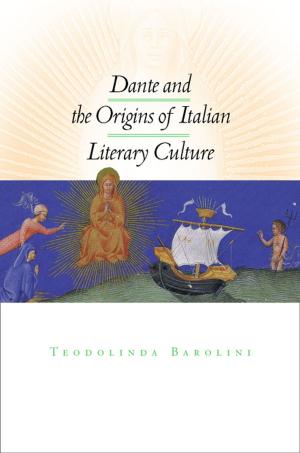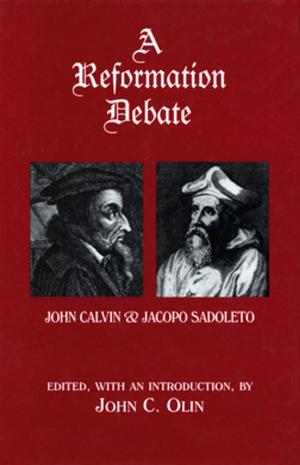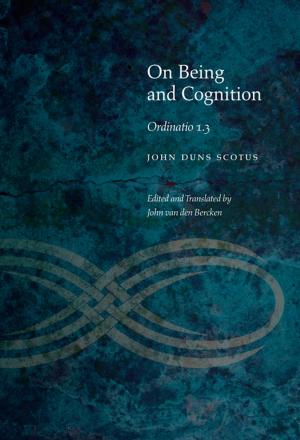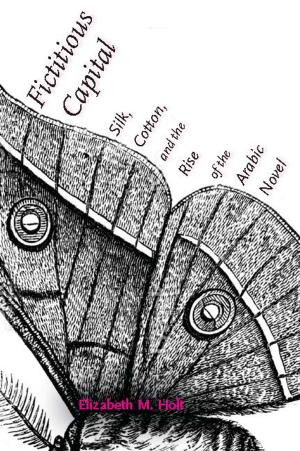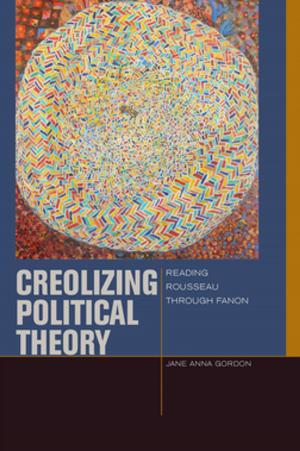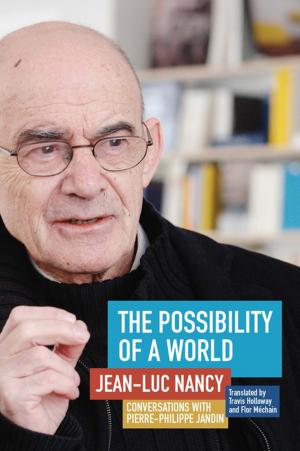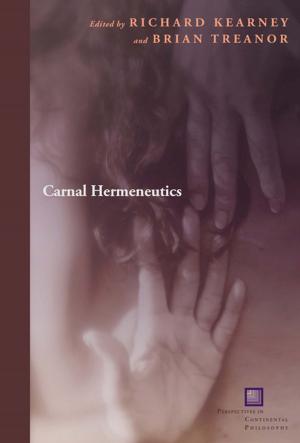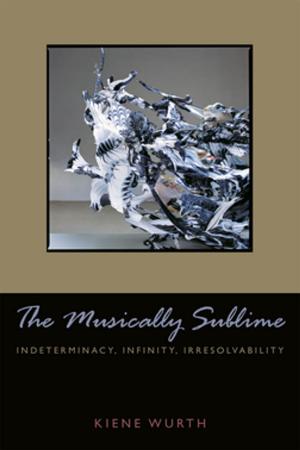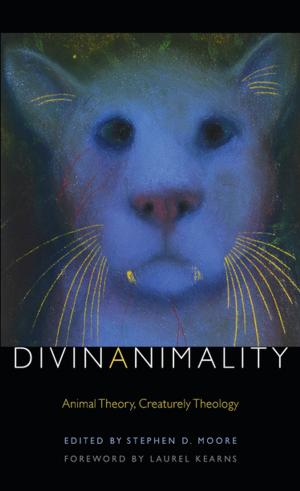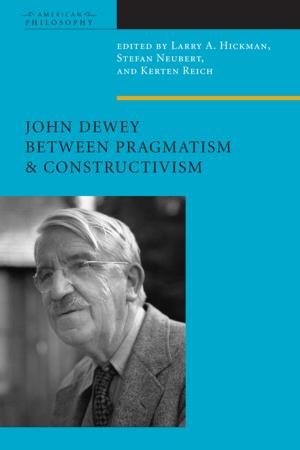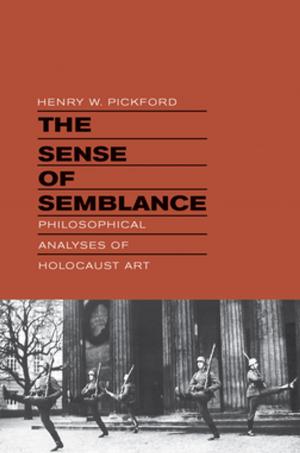Mocking Bird Technologies
The Poetics of Parroting, Mimicry, and Other Starling Tropes
Nonfiction, Religion & Spirituality, Philosophy, Aesthetics, Fiction & Literature, Literary Theory & Criticism, Theory| Author: | ISBN: | 9780823278503 | |
| Publisher: | Fordham University Press | Publication: | January 2, 2018 |
| Imprint: | Fordham University Press | Language: | English |
| Author: | |
| ISBN: | 9780823278503 |
| Publisher: | Fordham University Press |
| Publication: | January 2, 2018 |
| Imprint: | Fordham University Press |
| Language: | English |
Contributors: Madeleine Brainerd, Joe Conway, Fraser Easton, Christopher GoGwilt, Shari Goldberg, Melanie D. Holm, Sarah Kay, Kaori T. Kitao, Holt V. Meyer, Isabel A. Moore, Fawzia Mustafa, Gavin Sourgen.
Mocking Bird Technologies brings together a range of perspectives to offer an extended meditation on bird mimicry in literature: the way birds mimic humans, the way humans mimic birds, and the way mimicry of any kind involves technologies that extend across as well as beyond languages and species. The essays examine the historical, poetic, and semiotic problem of mimesis exemplified both by the imitative behavior of parrots, starlings, and other mocking birds, and by the poetic trope of such birds in a range of literary and philological traditions.
Drawing from a cross-section of traditional periods and fields in literary studies (18th-century studies, romantic studies, early American studies, 20th-century studies, and postcolonial studies), the collection offers new models for combining comparative and global studies of literature and culture.
Editors
Christopher GoGwilt is Professor of English and Comparative Literature at Fordham University. He is the author of The Passage of Literature: Genealogies of Modernism in Conrad, Rhys, and Pramoedya (Oxford, 2011), The Fiction of Geopolitics: Afterimages of Culture from Wilkie Collins to Alfred Hitchcock (Stanford, 2000), and The Invention of the West: Joseph Conrad and the Double-Mapping of Europe and Empire (Stanford, 1995).
Melanie D. Holm is Assistant Professor of the English Department and Graduate Program of Literature and Criticism at Indiana University of Pennsylvania. She also teaches in the university’s Women’s and Gender Studies program. Her scholarly focus is on eighteenth-century literature and skepticism.
Contributors
Madeleine Brainerd taught at Washington University in St. Louis and at Excelsior College. Since 2004 she has taught therapeutic yoga and medical qi gong in New York City, at the Integral Yoga Institute, Kenshikai Dojo, Gouverneur Hospital, and other venues. She studies histories of yoga’s intersections with ecological in/justice, animality, and affect theory.
Joe Conway is an Assistant Professor of American Literature at the University of Alabama in Huntsville. His articles have appeared or are scheduled to appear in the journals Women’s Studies, Early American Literature, and Nineteenth-Century Contexts. He is currently at work on a monograph about the social life of antebellum money that charts how discourses of noneconomic phenomena such as medicine, race, nationalism, and aesthetics informed nineteenth-century debates about what constitutes good money.
Fraser Easton is Associate Professor of English, University of Waterloo, Canada. A specialist in eighteenth-century literature, he has published on Jane Austen, Daniel Defoe, Maria Edgeworth, and Christopher Smart, as well as on newspaper records and historical accounts of passing women in the eighteenth century.
Shari Goldberg is Assistant Professor of English at Franklin & Marshall College in Lancaster, Pennsylvania. She is the author of Quiet Testimony: A Theory of Witnessing from Nineteenth-Century American Literature (Fordham, 2013). She has also published essays on silence, politics, and personhood in American literature. Her current research focuses on late-nineteenth-century models of mind and person in narrative and psychological writing.
Sarah Kay teaches French and Medieval Studies at New York University. She has written widely on medieval literature across languages, genres, and periods; her work combines the study of medieval texts, especially troubadour songs, with philosophical and theoretical inquiry. Her two most recent books are Parrots and Nightingales: Troubadour Quotations and the Development of European Poetry (2013) and Animal Skins and the Reading Self in Medieval Latin and French Bestiaries (2017).
Kaori Kitao (William R. Kenan Jr. Professor of Art History, Emerita, Swarthmore College) taught art history at Swarthmore College from 1966 to 2001. She was born in Tokyo and studied architecture at UC Berkeley and art history at Harvard. Her main specialization is Italian renaissance and baroque art; she has also taught courses in cinema history, material culture, urban studies, and Japanese architecture.
Holt V. Meyer is Professor of Slavic Studies at Erfurt University. He is the author of Romantische Orientierung (1995) and numerous articles and has co-edited the collections Juden und Judentum in Literatur und Film des slavischen Sprachraumes. Die geniale Epoche (1999), Inventing Slavia (2005), Schiller: Gedenken—Vergessen—Lesen (2010), and *Gagarin als Archivkö*rper und Erinnerungsfigur (2014). He is co-editor of the new book series Spatio-Temporality. Practices—Concepts— Media (De Gruyter). He is currently working on a book about the official Stalinist Pushkin celebrations of 1949.
Isabel (Annie) Moore completed her Ph.D. in comparative literature at the University of California–Irvine. From 2011 to 2013, she held a postdoctoral fellowship in English at the University of Victoria. She has published on Contemporary Irish and Canadian poetry, and her book project is titled The Ends of Lyric Life: A Theory of Biopoetics.
Fawzia Mustafa is Professor of English and African and African American Studies at Fordham University. She also teaches in the university’s Comparative Literature and Women’s, Gender and Sexuality Studies Programs. The author of V. S. Naipaul (1995), she has published numerous articles on postcolonial literature and development.
Gavin Sourgen is Visiting Assistant Professor of English at the Harriet L. Wilkes Honors College of Florida Atlantic University. He completed his D.Phil. at Balliol College (Oxford) in 2013, concentrating on the transitional poetics of Lord Byron’s verse, and has published on Byron, Coleridge, and romantic aesthetics in general.
Contributors: Madeleine Brainerd, Joe Conway, Fraser Easton, Christopher GoGwilt, Shari Goldberg, Melanie D. Holm, Sarah Kay, Kaori T. Kitao, Holt V. Meyer, Isabel A. Moore, Fawzia Mustafa, Gavin Sourgen.
Mocking Bird Technologies brings together a range of perspectives to offer an extended meditation on bird mimicry in literature: the way birds mimic humans, the way humans mimic birds, and the way mimicry of any kind involves technologies that extend across as well as beyond languages and species. The essays examine the historical, poetic, and semiotic problem of mimesis exemplified both by the imitative behavior of parrots, starlings, and other mocking birds, and by the poetic trope of such birds in a range of literary and philological traditions.
Drawing from a cross-section of traditional periods and fields in literary studies (18th-century studies, romantic studies, early American studies, 20th-century studies, and postcolonial studies), the collection offers new models for combining comparative and global studies of literature and culture.
Editors
Christopher GoGwilt is Professor of English and Comparative Literature at Fordham University. He is the author of The Passage of Literature: Genealogies of Modernism in Conrad, Rhys, and Pramoedya (Oxford, 2011), The Fiction of Geopolitics: Afterimages of Culture from Wilkie Collins to Alfred Hitchcock (Stanford, 2000), and The Invention of the West: Joseph Conrad and the Double-Mapping of Europe and Empire (Stanford, 1995).
Melanie D. Holm is Assistant Professor of the English Department and Graduate Program of Literature and Criticism at Indiana University of Pennsylvania. She also teaches in the university’s Women’s and Gender Studies program. Her scholarly focus is on eighteenth-century literature and skepticism.
Contributors
Madeleine Brainerd taught at Washington University in St. Louis and at Excelsior College. Since 2004 she has taught therapeutic yoga and medical qi gong in New York City, at the Integral Yoga Institute, Kenshikai Dojo, Gouverneur Hospital, and other venues. She studies histories of yoga’s intersections with ecological in/justice, animality, and affect theory.
Joe Conway is an Assistant Professor of American Literature at the University of Alabama in Huntsville. His articles have appeared or are scheduled to appear in the journals Women’s Studies, Early American Literature, and Nineteenth-Century Contexts. He is currently at work on a monograph about the social life of antebellum money that charts how discourses of noneconomic phenomena such as medicine, race, nationalism, and aesthetics informed nineteenth-century debates about what constitutes good money.
Fraser Easton is Associate Professor of English, University of Waterloo, Canada. A specialist in eighteenth-century literature, he has published on Jane Austen, Daniel Defoe, Maria Edgeworth, and Christopher Smart, as well as on newspaper records and historical accounts of passing women in the eighteenth century.
Shari Goldberg is Assistant Professor of English at Franklin & Marshall College in Lancaster, Pennsylvania. She is the author of Quiet Testimony: A Theory of Witnessing from Nineteenth-Century American Literature (Fordham, 2013). She has also published essays on silence, politics, and personhood in American literature. Her current research focuses on late-nineteenth-century models of mind and person in narrative and psychological writing.
Sarah Kay teaches French and Medieval Studies at New York University. She has written widely on medieval literature across languages, genres, and periods; her work combines the study of medieval texts, especially troubadour songs, with philosophical and theoretical inquiry. Her two most recent books are Parrots and Nightingales: Troubadour Quotations and the Development of European Poetry (2013) and Animal Skins and the Reading Self in Medieval Latin and French Bestiaries (2017).
Kaori Kitao (William R. Kenan Jr. Professor of Art History, Emerita, Swarthmore College) taught art history at Swarthmore College from 1966 to 2001. She was born in Tokyo and studied architecture at UC Berkeley and art history at Harvard. Her main specialization is Italian renaissance and baroque art; she has also taught courses in cinema history, material culture, urban studies, and Japanese architecture.
Holt V. Meyer is Professor of Slavic Studies at Erfurt University. He is the author of Romantische Orientierung (1995) and numerous articles and has co-edited the collections Juden und Judentum in Literatur und Film des slavischen Sprachraumes. Die geniale Epoche (1999), Inventing Slavia (2005), Schiller: Gedenken—Vergessen—Lesen (2010), and *Gagarin als Archivkö*rper und Erinnerungsfigur (2014). He is co-editor of the new book series Spatio-Temporality. Practices—Concepts— Media (De Gruyter). He is currently working on a book about the official Stalinist Pushkin celebrations of 1949.
Isabel (Annie) Moore completed her Ph.D. in comparative literature at the University of California–Irvine. From 2011 to 2013, she held a postdoctoral fellowship in English at the University of Victoria. She has published on Contemporary Irish and Canadian poetry, and her book project is titled The Ends of Lyric Life: A Theory of Biopoetics.
Fawzia Mustafa is Professor of English and African and African American Studies at Fordham University. She also teaches in the university’s Comparative Literature and Women’s, Gender and Sexuality Studies Programs. The author of V. S. Naipaul (1995), she has published numerous articles on postcolonial literature and development.
Gavin Sourgen is Visiting Assistant Professor of English at the Harriet L. Wilkes Honors College of Florida Atlantic University. He completed his D.Phil. at Balliol College (Oxford) in 2013, concentrating on the transitional poetics of Lord Byron’s verse, and has published on Byron, Coleridge, and romantic aesthetics in general.

